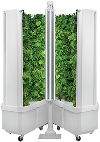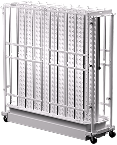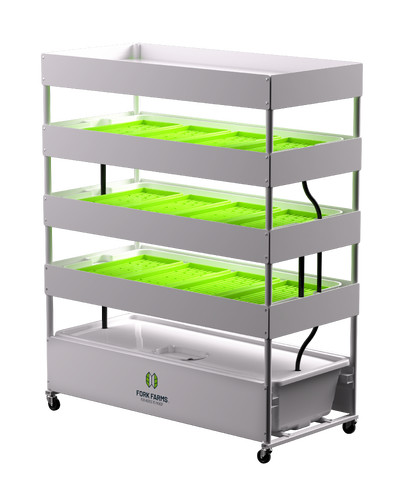Enhancing Mental Health with Hydroponic Gardening Techniques
Discover how hydroponic gardening can significantly improve mental well-being while developing community connections.
The Therapeutic Benefits of Hydroponic Gardening
Gardening has long been recognized for its therapeutic effects on mental health. With hydroponic gardening, these benefits are amplified, providing a serene and structured environment that can alleviate stress and anxiety. The act of nurturing plants and watching them grow can be incredibly fulfilling, offering a sense of purpose and achievement.
Hydroponic gardening is particularly beneficial because it allows for year-round cultivation, ensuring that individuals can engage in this calming activity regardless of the season. The controlled environment of hydroponic systems like Fork Farms Flex Farm also minimizes common gardening frustrations, such as pests and unpredictable weather, which can be sources of stress.
Implementing Hydroponics in Schools, Hospitals, and Counseling Centers
Integrating hydroponic gardening into schools, hospitals, and counseling centers can provide significant mental health benefits to students, patients, and clients. In schools, hydroponic systems can serve as a hands-on educational STEM tool, teaching students about plant biology, sustainability, and healthy eating habits. The act of gardening can also improve students' focus, reduce anxiety, and enhance overall well-being.
In hospitals and counseling centers, hydroponic gardening can offer therapeutic benefits to patients and clients. Engaging in gardening activities can be a form of occupational therapy, helping individuals recover from physical and mental health issues. The presence of green spaces and the act of caring for plants can create a calming environment, reducing stress and promoting relaxation.
Fostering Community Through Shared Hydroponic Gardening Experiences
Hydroponic gardening can also be a powerful tool for building community and fostering social connections. Gardening projects can bring people together, providing opportunities for collaboration and shared experiences. This sense of community can be particularly beneficial for individuals who may feel isolated or disconnected.
Shared hydroponic gardening experiences can also promote intergenerational learning and cooperation. Older adults can share their knowledge and experience with younger generations, while children and teens can introduce new technology and innovative ideas. This exchange of knowledge and skills can strengthen community bonds and create a supportive network.
Getting Started: Tips for Beginners in Hydroponic Gardening
Starting a hydroponic garden may seem daunting, but with the right guidance, anyone can become a successful hydroponic gardener. Begin by choosing a hydroponic system that suits your space and needs. Systems like Fork Farms Flex Farm are user-friendly and come with comprehensive guides to help you get started.
It's important to select the right plants for your hydroponic garden. Leafy greens, herbs, and certain vegetables like tomatoes and peppers thrive in hydroponic systems. Ensure you monitor the water quality, nutrient levels, and lighting conditions to create an optimal environment for plant growth. With patience and practice, you'll find that hydroponic gardening is a rewarding and enjoyable endeavor.
To learn more and get started now, click here.
Important Links:
























